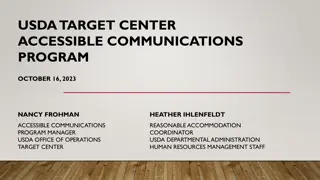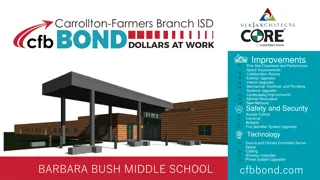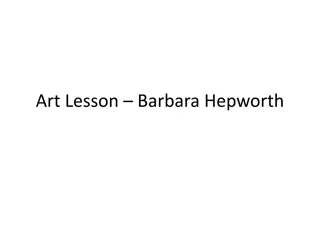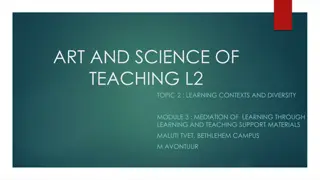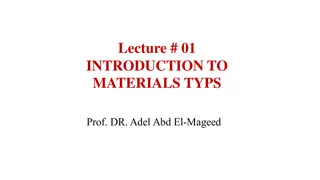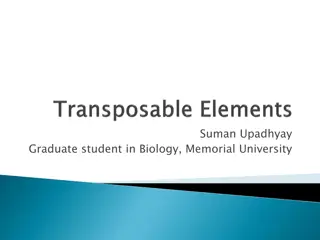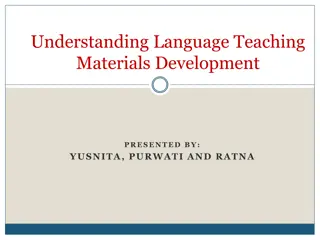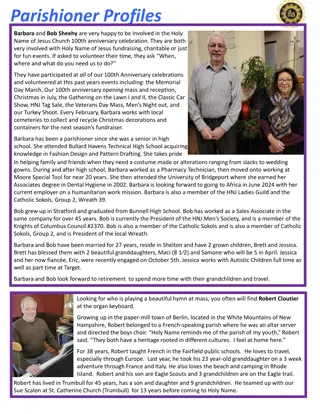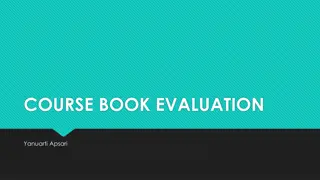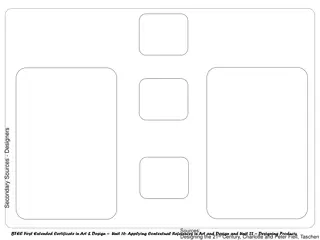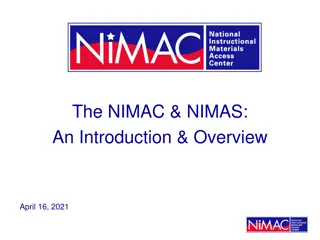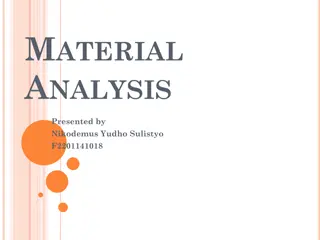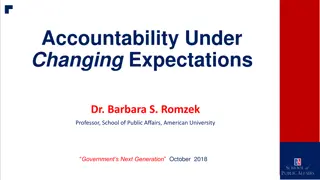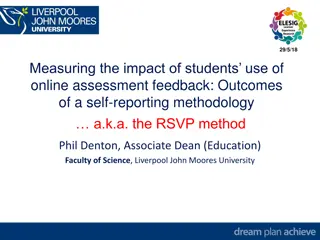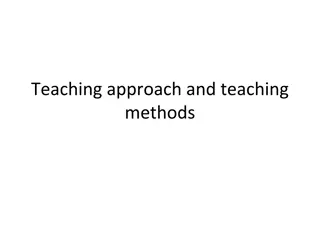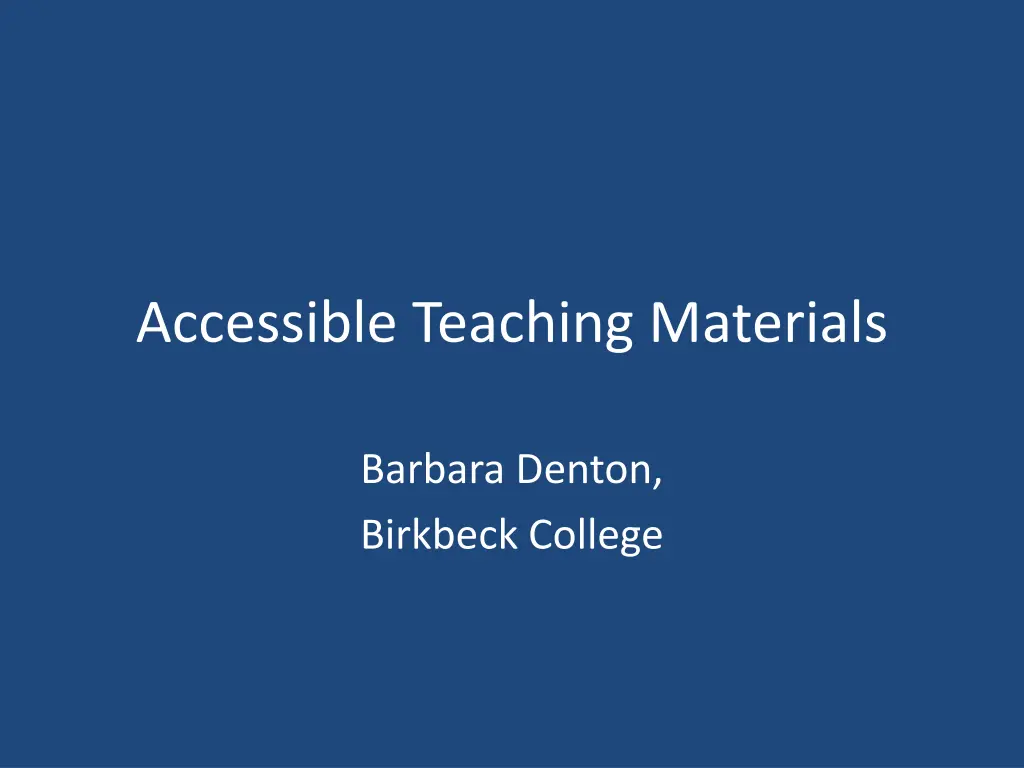
Enhancing Teaching Materials Flexibility
Explore the importance of flexible teaching materials for accommodating changing pedagogies, learning styles, and outcomes. Discover the key elements of accessible teaching materials used by lecturers and students, along with existing guidelines for incorporating accessibility into educational resources.
Download Presentation

Please find below an Image/Link to download the presentation.
The content on the website is provided AS IS for your information and personal use only. It may not be sold, licensed, or shared on other websites without obtaining consent from the author. If you encounter any issues during the download, it is possible that the publisher has removed the file from their server.
You are allowed to download the files provided on this website for personal or commercial use, subject to the condition that they are used lawfully. All files are the property of their respective owners.
The content on the website is provided AS IS for your information and personal use only. It may not be sold, licensed, or shared on other websites without obtaining consent from the author.
E N D
Presentation Transcript
Accessible Teaching Materials Barbara Denton, Birkbeck College
Teaching materials Teaching materials should be flexible to suit: changing pedagogies learning styles learning outcomes questions raised in class Our lecturers are great at this, but we also need to consider the anticipatory duty to make reasonable adjustments.
What are we talking about? Materials used by lecturers in class Materials that lecturers want the students to use to supplement their learning
Survey of lecturers Materials they are using: PowerPoints PDFs and some Word docs (posted on Moodle) Printed booklists Printed hand-outs Whiteboards Videos often YouTube (some audio) Other software relevant to subject Some flipped classroom practice but not much yet
Materials students are supposed to use by themselves Digitised readings service provided by the Library ebooks ejournals Printed books and articles Videos, audio, social media didn t come up as being an issue
College guidelines Our procedures include this statement that staff should be: Incorporating accessibility into teaching materials and maintaining them in an easily convertible electronic format so that they can be converted and produced in accessible formats at short notice This doesn t cover the wide range of possible teaching materials e.g. video. Staff are unaware of this statement.
Moodle There are minimum standards to adhere to, but they don t include accessibility. (although there is help on Moodle about accessibility)
ISSA Individual Student Support Agreement includes a section on teaching materials: Usually asks lecturers to provide materials in advance Sometimes specific advice on format This is specific to one student and is not an inclusive approach.
Policies and guidance They exist but they: are limited in focus have no clout go unread
Significant inclusivity issues Teaching materials are not produced with accessibility in mind Materials are handed out in or after class (not before) There are many scanned articles/texts/images (PDFs)
Training for staff 422 contracted staff and over 800 hourly paid staff No regular training on accessible teaching materials Accessibility is not built into other IT training for staff e.g. on Word, PowerPoint, Excel Lecturers requested all types of training delivery (face to face, videos, hand-outs etc..)
Problems There is ignorance about the impact that not being inclusive has Responsibility is unclear -- who should be doing this? the Library student support network (DSA) Schools and departments Individual lecturers It is complex and can be very time consuming and difficult to achieve There isn t one fix that supports all students, learning styles and pedagogies.
What should we do? A shared resource on how to make materials inclusive/accessible currently creating a Moodle module at Birkbeck Have Word, PowerPoint, Moodle factsheets PDFs are a priority! Clearer definition of responsibilities Better communication within the College Better training and resources for staff Campaign to raise awareness/resources
Barbara Denton b.denton@bbk.ac.uk 0207 079 0717

